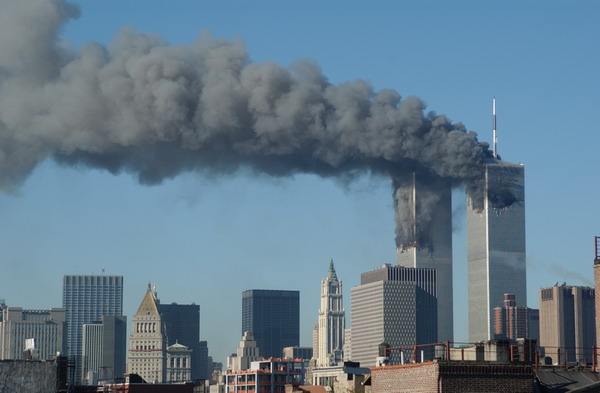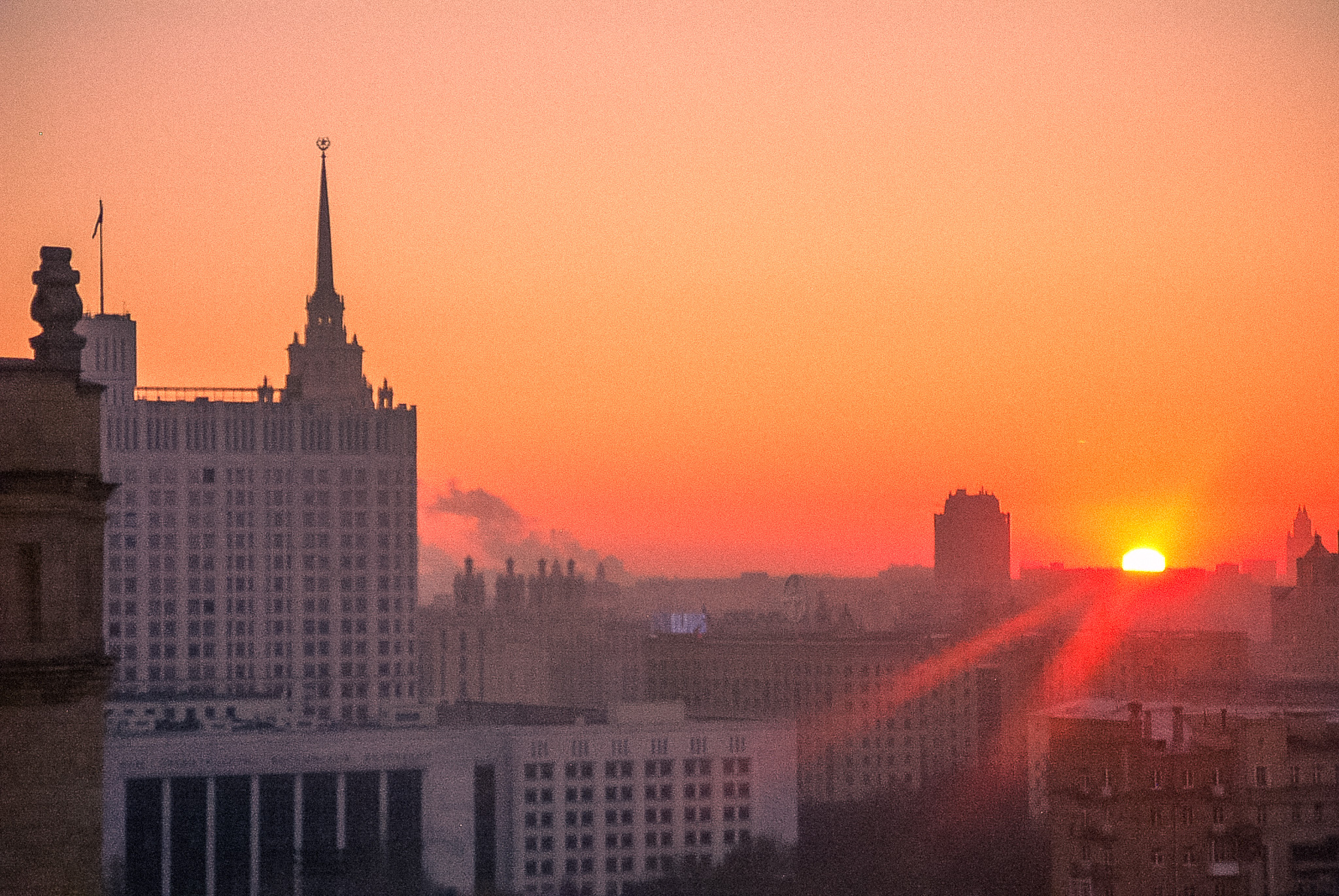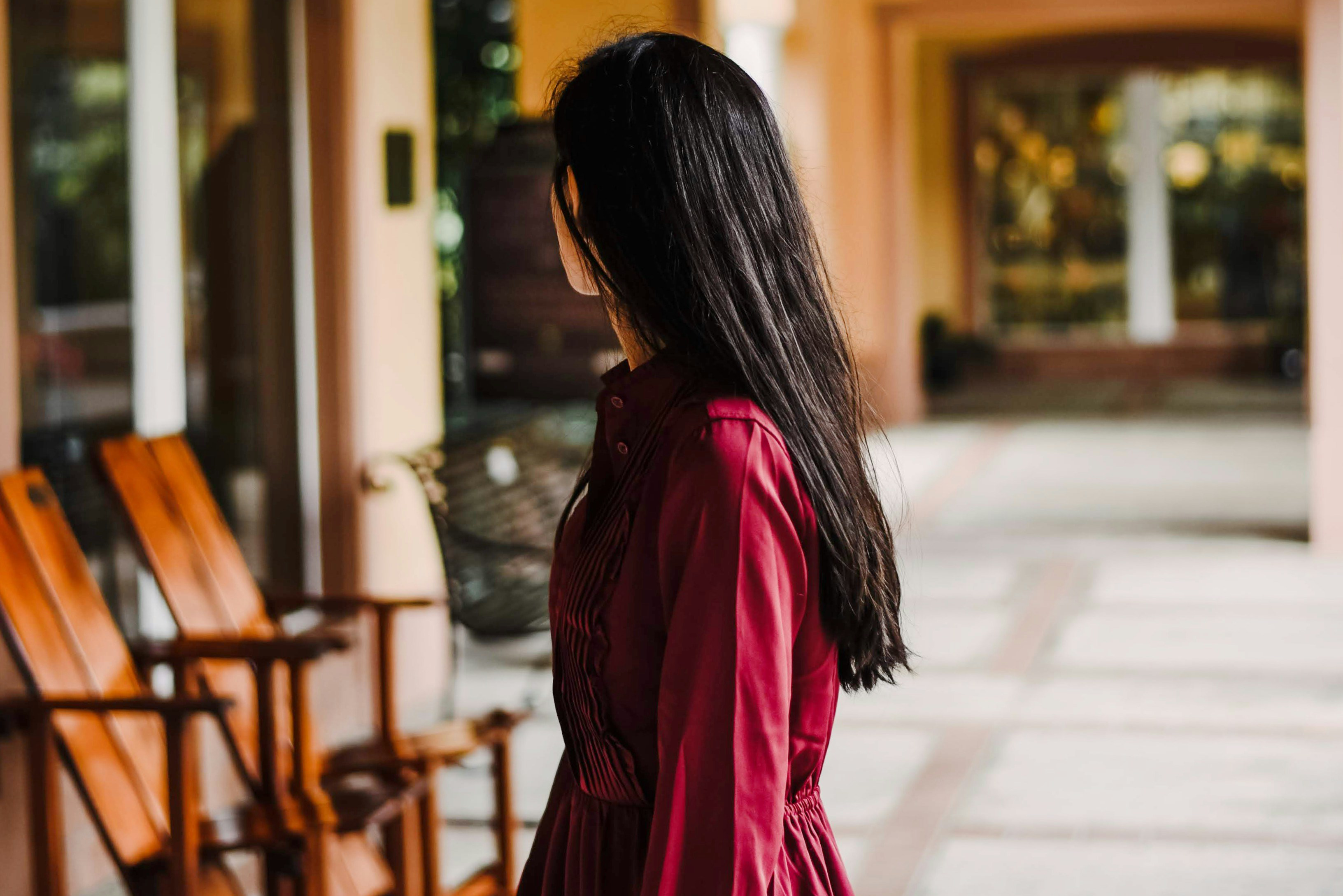I was there on September 11. Not directly downtown, but close enough. Too close!
I was still sitting in bed, working on a proposal that needed to go out in the morning. It was around 8:50 a.m. when I received an email from my ex-girlfriend Nadja. The message read: “Chris, let us know you’re alive after this catastrophe!” I went to the window and looked outside. The sky was blue, and on St. Marks Street, people were going about their business as usual. Everything seemed normal—a typical morning on a beautiful New York autumn day.
Something must have happened, so I checked the news online. Aha, a plane had hit the World Trade Center. There were no pictures yet. I thought it must be an accident—probably one of those small Cessnas that fly up and down the Hudson River all day. The Americans were likely exaggerating again. They always do.
I took a leisurely shower and got ready for the office. Then I checked the news again. A second plane had hit the other tower. President Bush was talking about terrorism. Hmm, this seemed more serious, but I still thought of a Cessna, maybe loaded with explosives or something. I headed to work.
Outside, people were crowded around cars with their radios on. They were listening and discussing. Now I slowly began to understand that this had to be something bigger. Life in New York had come to a standstill. People were waiting for more news, stunned. I saw little fear yet, but the faces of those I passed showed shock and disbelief.
At Astor Place, I caught my first glimpse of the World Trade Center—or rather, where it should have been. All I saw was smoke where the tops of the towers usually rose above the buildings. On Lafayette Street, ambulances were speeding north. Shortly after, I reached Broadway. The street was deserted, except for the occasional emergency vehicle with flashing lights and sirens. Crowds of people were heading north. Someone told me the subways had stopped running.
I walked against the flow. The expressions on people’s faces were terrifying. Still, I continued toward the office. That was where I had fast internet, my passport, and my data. I could decide what to do from there. Two blocks later, I left Broadway and headed toward Washington Square Park.
Usually, I enjoyed this walk to work in the morning. Today, it was frightening. When I reached the park, my phone rang. A journalist from NDR was on the line. We had an interview scheduled for that evening. She asked how things were on my end.
A few minutes later, I turned onto LaGuardia Street, where my office was. From there, you usually had the best view of the Twin Towers. Tour buses often passed by, with guides explaining their history and construction. I was still on the phone when I froze. Where were the towers?
As I rounded the corner, I saw the North Tower collapse. Where the two imposing towers had once stood, there was now only a cloud of smoke.
“What’s happening? Hey! What’s going on?” the journalist asked. I couldn’t answer. For the first time in my life, I was at a loss for words. Blackout. I was in shock.
Around me, people were screaming. Some were hysterical, others furious. Many were crying. Some sat on the sidewalk, others huddled together, holding each other. One person lay on the ground, pounding the asphalt with their hands. It was chaos—shock. No one was composed; no one could control their emotions. I continued walking. The office was only a few meters away. I needed information. What had happened? What was the situation? I had to get a clear picture.
The journalist was still on the phone. “The towers… both are gone,” I stammered. “What do you mean, gone? How is that possible?” she asked. “Gone. Collapsed. Not there anymore. There must be a lot of casualties. At this time of day, there are an estimated 25,000 people in the area,” I replied. My brain was slowly starting to work again.
As I neared the office, I passed the first dust-covered people. They must have been there when the South Tower collapsed. Their clothes and hair were coated in white dust, and their faces showed sheer horror.
In the office, there was only one colleague. She was panicked and hysterical. I tried to calm her down, but even I didn’t believe my own words. By then, mobile phones had stopped working, and long-distance calls were impossible. The TV wasn’t broadcasting either; the transmission mast had been on the WTC, and we didn’t have cable.
The streets, usually buzzing with energy, had fallen eerily silent, broken only by the occasional siren of an emergency vehicle. That day, a city that never sleeps was frozen in time, and the events that unfolded would change my life forever.
The only thing working was the radio, but even there, the mood mirrored what was happening on the streets. The hosts were crying, agitated, letting callers express their hysteria. Howard Stern was demanding to nuke the entire Arab world, cutting off any critical callers. On the radio, they said it was war. A plane had crashed into the Pentagon, another into a field. Eight more planes were reportedly still in the air.
No one knew where these planes were headed or where they might strike next. Manhattan was still mentioned as a potential target. Did the planes have bombs on board? Perhaps radioactive material or biological-chemical agents? Anything seemed possible. Somewhere in the city, two vans were said to have exploded, and others were suspected to be rigged with explosives. The entire air traffic system in the U.S. was shut down. Every plane had to land.
What now? I read the news online. It was painfully slow but the only reliable source of information at the moment. I wrote emails to my friends, asking them to call my mother and tell her I was safe.
I gradually calmed myself and made a plan: stay put and wait. I created backups of my most important data and tried to contact my friends in New York. I thought of my German friend Max, who had his office in the North Tower. I wondered if he had survived and hoped he was okay.
More and more people came to the office—employees, friends, and acquaintances. Brigitte, who worked for CNN Germany, had been near the World Trade Center. When the South Tower collapsed, she had been at a payphone talking to her mother. After that, she just ran—without thinking, heading north away from the World Trade Center—until she ended up in front of my office door.
Occasionally, a call from abroad would come through. Friends checked on us, and journalists wanted live interviews with Brigitte for the radio. In the afternoon, I went to the supermarket across the street to get some sodas. The shelves were nearly empty; only irrelevant items were left. People were stockpiling essentials like canned goods and water. Damn, I hadn’t even thought of that. In a panic, I bought whatever was still available and usable.
As I exited the store, I paused for a moment and looked south. The Twin Towers were gone. How terrible. How many people must have died? People were still talking, their voices filled with disbelief. I listened and thought, when suddenly, another building collapsed. It looked almost like a controlled demolition—first, a few panels broke off at the top, and then the entire building crumbled inward. It was WTC 7.
In the evening, we decided to go to my friend Francois’s place. I invited Brigitte and the journalist from NDR, who wanted to interview him. Francois, like many New Yorkers, had watched the events unfold from his rooftop terrace and had taken photos. He and his wife were just as shocked as we were.
After the interview, we sat on his terrace and talked. We all felt like we were in a movie—except the fiction had become reality, and it was incredibly hard to process. Our eyes kept drifting to the spot where the Twin Towers had once stood, shining brightly in the skyline. Then came the shock: now, there was only smoke.
Eventually, the wind shifted. The smoke drifted toward us, and fine white ash fell like snow onto the streets. It had a strange smell—synthetic, like burned plastic with a metallic hint. I thought of the countless dead and realized their ashes must also be in that cloud. The thought made me sick.
We headed home. The city was eerily silent, with only the sirens of emergency vehicles breaking the stillness. The streets in the East Village and cars were covered in a few centimeters of white ash. It looked almost like fresh snow. Bizarre. What a day. It would change my life forever.
On September 11, 2001, my good friend Atsushi Shiratori lost his life in the North Tower. I wouldn’t find out until the next day. He was a manager and partner at Cantor Fitzgerald, the firm that lost two-thirds of its employees that day. Atsushi had always kept his personal life strictly separate from work. I knew where he worked but had no idea his office was at the very top of the WTC until 9/11.
My friend Max had been stuck in traffic outside the World Trade Center at 8:46 a.m. He lost his office and all his data but, thankfully, survived.
For years, this day has been a day of mourning. At first, September 11 was too much to comprehend. Then I distanced myself, trying to stabilize my situation and protect myself. I suppressed what was happening around me and tried to stay cool.
The day after, my business partner and Atsushi’s best friend, Marc Harris, called to tell me about our friend’s presumed death. Marc had spent the entire night searching hospitals for Atsushi. That call made September 11 personal and hit me right in the heart. To this day, I still feel the weight of its impact.
Fotos: Francois Portmann
From my photo album:
Fotos: Francois Portmann



